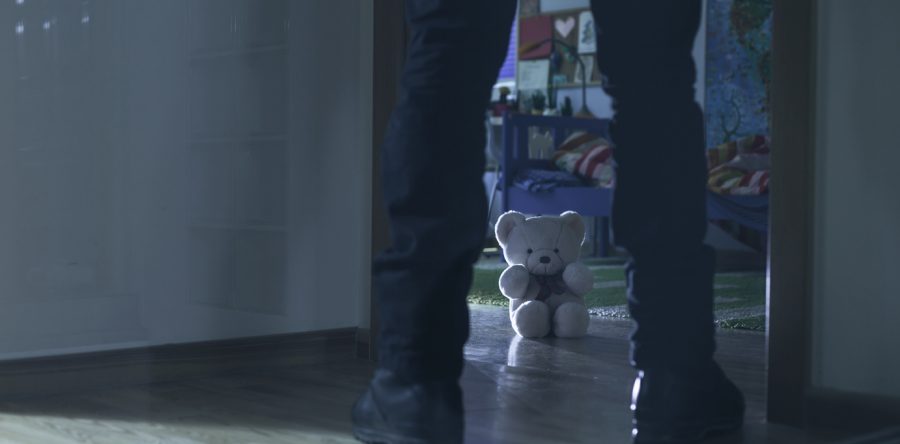Many people ask, "How can parents allow their child to be in a situation where they are sexually abused?" Many times, the answer is "grooming."
Grooming is the process by which pedophiles and other perpetrators of sexual abuse gradually manipulate their victims into submission and, in many cases, a reluctance to reveal the crime.
Serial pedophiles in particular are often very practiced at manipulating children, as well as children’s parents. Often these individuals craft a persona in the community such that they are seen as upstanding citizens who mentor youth in some way – a persona that would cause a parent to never think that they would harm their children.
As a psychologist in private practice, as well as one who contracts with Children and Youth authorities and law enforcement agencies, I have encountered many grooming scenarios including the well-publicized Jerry Sandusky case. Mr. Sandusky previously was not only considered a pillar of the community and a celebrity; he was also involved in programs designed to assist disadvantaged youth. Other perpetrators may not have such a public profile; however, they are similarly capable of gaining the trust of parents or children. They often purport to be mentors of children or enjoy working with children (perhaps as coaches, teachers or clergy).
So how does a parent differentiate between a well-meaning individual and the predator?
Perpetrators typically initiate grooming by offering to help the victim and/or the victim’s family, either as a big brother or father figure, or as a caretaker who will in some way bring benefit to the family. They gradually ingratiate themselves with both the child and parents. Children are often offered special activities, money, material items, and/or other rewards for associating with the perpetrator. They come to see the perpetrator as a friend whom they can trust.
Perpetrators also take advantage of children’s naïveté in terms of understanding what types of interpersonal behaviors are normal. As Victim 1 (Aaron Fisher) in the Sandusky case explained, he thought a hand placed on the thigh while driving in a car might simply be a gesture of friendship as opposed to a sexual advance. As we all know, children tend to follow instructions and conform to the expectations of adults. They are not prone to question or object to expressions of affection, unless they have had the benefit of learning about potential perpetrators and sexual abuse.
Perpetrators slowly desensitize their victims, meaning they gradually express more physical affection, working their way from a simple touch, perhaps on the shoulder or the back, to touching the individual in more sensitive areas as well as perhaps giving a kiss. The child becomes accustomed to the various levels or increments of being touched and therefore is much more likely to submit than to object. Often, before they know it, the individual is fondling them or committing other sexual acts under the guise of affection and/or describing it as a game and something that people do but do not tell others.
The emotional relationship and physical desensitization occur simultaneously. The child typically feels indebted and loyal to the perpetrator. Consequently, they don’t object to the sexual act. Those same feelings, as well as the feeling of shame and the stigma associated with sexual abuse, inhibit children from revealing what has happened to them. In some cases, they are also very fearful about the consequences the perpetrator might face. Many children have told me they do not want their perpetrator to go to jail or be punished for what they have done. Even though they have been horribly abused, victims still have a strong sense of loyalty or friendship.
In other cases, perpetrators threaten their victims. Threats include telling children that if they reveal the abuse, a Children and Youth agency will take them away from their parents and place them in a foster home. This is an extremely common manipulation used by pedophiles. Children may also be told that if they reveal the abuse, they will get in trouble since they participated. Less common, children may be threatened with physical harm or harm to their families.
When you combine the elements of grooming, where the child is manipulated into feeling obligated to the perpetrator and/or loyal, as well as hearing what may happen to them as a result of telling an adult about their abuse, victims feel a great sense of shame and often see no benefit to reporting the molestation.
Even if they could bring themselves to report, many children fear they would not be believed. This is the case with at least half of the victims with whom I have worked. They view the situation as word-against-word, where the adult will always be believed over the child. The children do not realize that adults, particularly trained Children and Youth agency staff and therapists will, in fact, likely believe them. A child sharing such information is highly unusual and the claim is rarely made up. In fact, with the exception of children involved in ugly custody battles, I have never encountered a child that simply made up a story involving sexual abuse and provided detail. The public needs to trust that professionals in child protective agencies, as well as psychologists and other therapists, will be able to determine (in almost all cases) what is valid versus something that is not.
Parents need to look the signs that their child is being abused. Oftentimes, children will not reveal the abuse, but they will begin to resist being in the company of the perpetrator. If a child begins to object to spending time with either an adult or an older child, parents need to evaluate this carefully and explore the basis of the objections. Children may also demonstrate acting-out behaviors, anxiety and/or depression. They may have incontinence or other accidents that make no sense. Children often communicate in this way. They also may complain of physical ailments such as a tummy ache or headache or unexplained pain; this is another way children call attention to trauma they are experiencing.
Although some perpetrators are pedophiles, and in many cases serial pedophiles, the most common perpetrators of child sexual abuse are people who are related to the family or are long-time friends or acquaintances. Perpetrators can be very young; I have encountered dozens of cases where perpetrators were between the ages of 12 and 18. Parents must be wary of any individual who is much older than their child and yet pursues a relationship.
When in doubt about whether a child (or an adult) may be the victim of molestation, that individual should at least have the benefit of meeting with a qualified therapist, such as a child psychologist, who is experienced in treating the abused. In cases where there is suspected abuse, or perhaps abuse confirmed by a professional, typically referrals are made to a local Children’s Advocacy Center where both therapeutic staff and law enforcement officials work together to help victims and their families.





